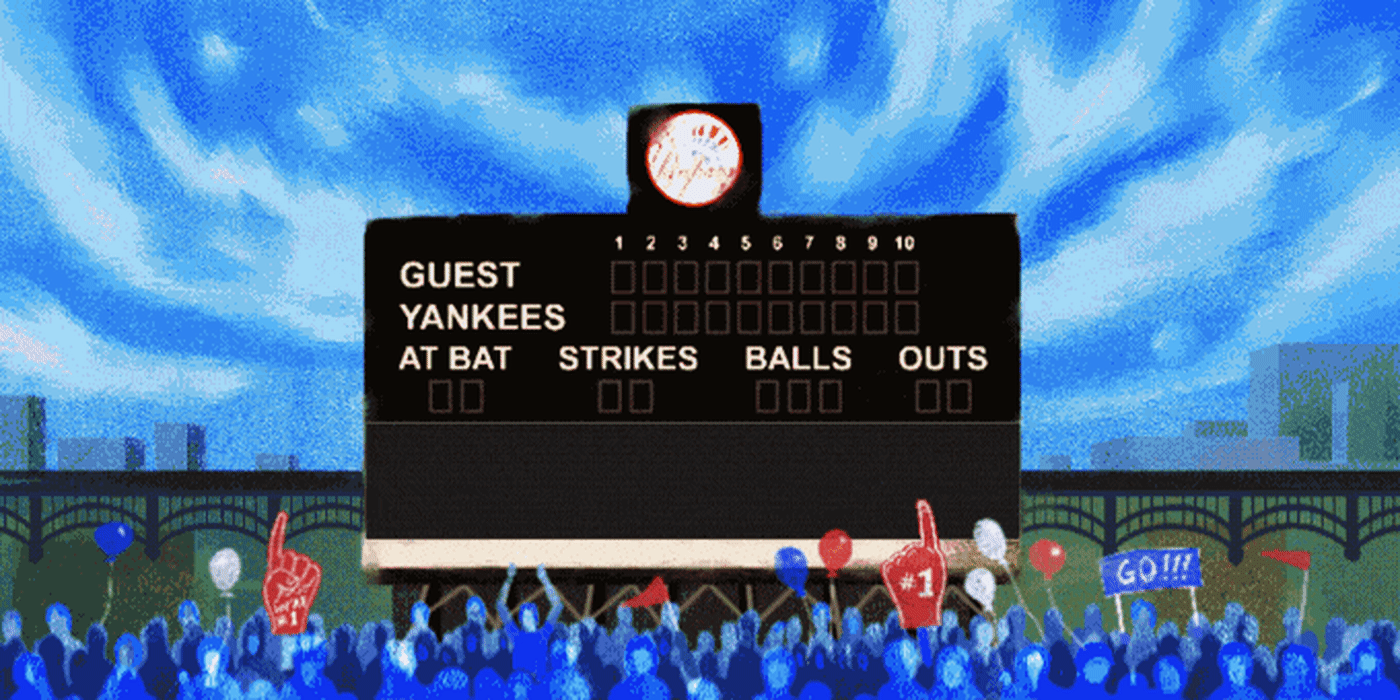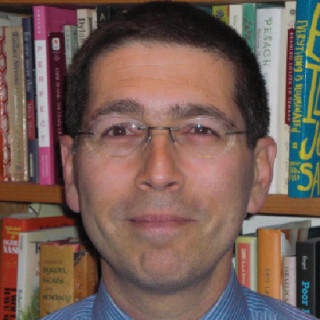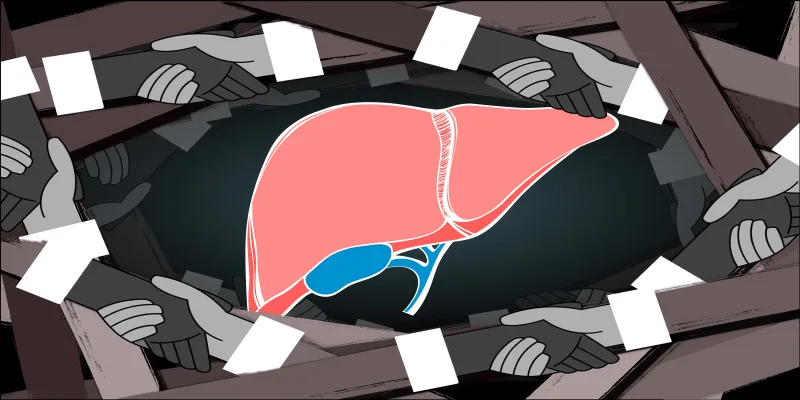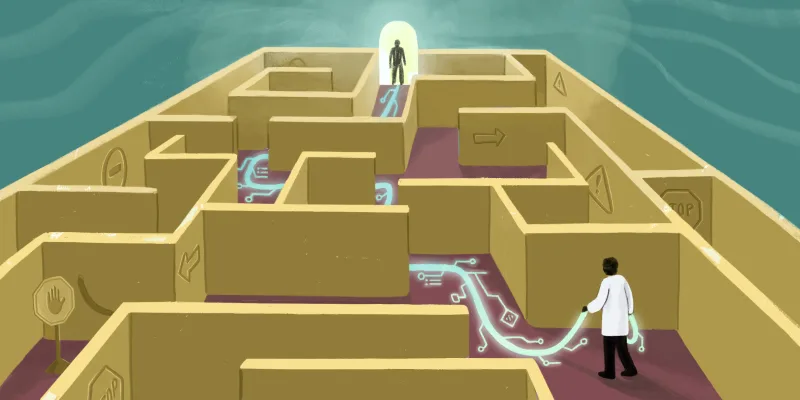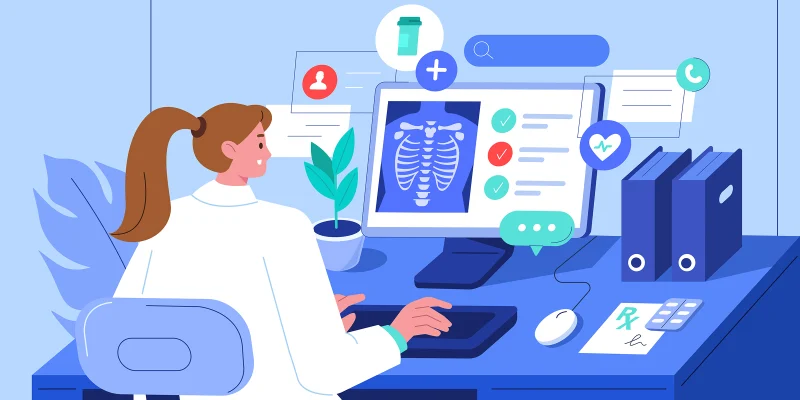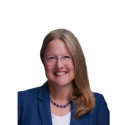I recently moved offices to the other side of my institution and while excavating my desk, I found a stack of old photos. On the top, as if I had summoned up the ace of spades in a card trick, was a picture of myself and my patient Max at Yankee stadium. In looking at the photo, I was reminded of the joy Max and I experienced together — an emotion that may seem counterintuitive to the reality of medicine. Though like many clinicians I have challenging days which tax my patience and my passion, I have also been fortunate enough to have escaped the pernicious poison of burnout. I believe that my ability to continuously find pleasure in medicine is down to my connections with patients like Max — a type of relationship that I describe in detail below and that I encourage other clinicians to develop with their own patients.
My patient Max arrived at my 300-bed nursing/rehab facility in the early spring about 20 years ago. He initially came into our short-term rehab unit but ended up staying the remainder of his life on our nursing home side. Max was intellectually disabled and confined to a wheelchair, and he arrived with a pressure ulcer on his bottom that required 30 days of complex wound care. Once stabilized, he was tossed around the horn and eventually landed in my (gloved) hands. He had a quasi-relative in Florida who tried to be helpful, but who admitted she hadn’t seen Max since he was a child; he was now in his late 40s.
When I first met Max, he was curled up in a ball. This was not from medical or wound issues, but out of depression. Max was inaudible during his first examination — but I could tell that there was a lot there, under wraps.
Over the next year, my colleagues and I watched as Max resumed his life. With a generous array of therapies, he began the journey to wellness. When his wound was at last shrinking to the point of being ripe for a muscle flap, the flap took well and in another month Max was able to get around safely in a padded wheelchair and then finally to use a walker.
Summer went by and fall approached. The true Max emerged. He was garrulous to the point of fatigue (of staff!) and was the “mayor” of the home. He knew everybody’s business and backstory, whether staff, visitors, or residents. He had a keen memory and by the World Series in October, he was quoting me baseball statistics from the past that astounded me. Someone bought him a Yankees cap and he wore it even to sleep. In those days, our administrator Marv would gather baseball fans to watch the World Series games on the oversized lobby TV. Max was in heaven and with his gift of gab might as well have been the play by play announcer and the color commentator rolled into one.
I myself was a Yankees fan and was clued in by Marv, a jewel of a man, to Max’s similar allegiance. During the televised games, Max would cheer exuberantly — these were the glory days of our mutual team, mind you. He would also drop heavy-handed hints that he wanted to go to a real game.
During this time, I was approaching the midway point of my career and feeling off kilter. For the first time that I recall, our big-hearted director of nursing pulled me aside to ask why I was so “grumpy” to her staff. The short dark days of winter were relentlessly on the wing and I needed a jolt. Taking Max to the stadium seemed like a good solution: It would require intentionality, planning, and care, and it would mean the world to a patient I had come to be fond of.
I can’t recall if it was Marv or me who formally suggested it, but by the end of the season, we had a plan. Unsurprisingly, Max was all in. We checked with his Florida connection just in case, and she was fine with it. We didn’t have to check with the nursing home about liability — Marv was the nursing home! Though such an outing was not on the menu for most medical directors, I figured that it would be a boon: Ideally, it would make me feel less jaded, and it would certainly make Max feel seen and understood.
When the day of the game arrived, we grabbed our tickets for the wheelchair section and headed to the Bronx. Once we shut off the engine and paid the attendant, however, we realized we had no chance of getting Max out safely as we’d forgotten the sliding board. Rather than panic, the misstep presented an opportunity for joy: The attendant blew a whistle and two gruff parking lot hulks appeared out of nowhere and, ignoring us, beelined to Max. Without questions or comments and after a quick heave-ho, Max was airborne; he flashed a shit-eating grin and never batted an eyelash. Our two saviors had lunged in and with great strength and expertise pulled Max out safely with a perfect landing into his oversized wheelchair. Our therapists would have done well to hire them on the spot. In a flash, they each vanished like Superman who beats a hasty retreat before anyone can thank him.
Max was likely more calm about this than we were, and saw it as part of the greater plan to get him to “The Stadium.” As we wheeled Max up the ramp and he had that first look at that green paradise which is the manicured Yankees outfield, he became exuberant. Reflecting on it now, I wonder if some of the happiness lay in shedding his identity as “just another” nursing home resident living out the last leg of his journey in an institution with no way out. He was beginning to reclaim his identity as Max the mayor, Max the chatterbox, and yes, Max of the greater Yankees fandom, cheering alongside 50,000 other die-hard fans.
Though the trip was short-lived, the glow of it warmed me, Marv, and Max for months. Max in particular had the time of his life. I think the stories that swept around the nursing home after our return changed the staff’s opinion of him; he was seen as more independent and capable than before. The outing became a touchpoint for Max at the home forevermore. Though he’s since passed away, the memory of that one day in the Bronx lives on. In fact, it was the story that I shared at Max’s memorial service.
The joy that we provided Max and the joy that Max brought to us also lives on. When I came across the photos from the trip while moving offices, I could feel it again. That day showed me that going out of one’s way for patients is worthwhile — and can lead to genuine connection. Since then, my patients and I have been there for each other in numerous ways. For example, there have been snow days when I volunteered (and was expected) to feed our residents when regular staff could not make it in. And when my father died, I sat shiva in the small synagogue at our nursing home and the residents comforted me. Making these connections has been a crucial component of my career.
Though my experience with Max was a particularly special one — and some might say it’s outside the purview of medicine — taking patients on trips doesn’t have to be a big event. Our activities department has valiantly offered field trips now and then to a deli or a day at the beach, and I have seen other residents happy just to get out of the home for a few hours to go to a doctor’s office. What really makes the difference is taking the time to get to know patients as people and see what would make them excited, and then to follow through. I believe that a career comprised of occasional trips for patients over the years can keep you joyful and just maybe serve as a partial antidote to burnout. My fellow clinicians, I urge you to go forth and play ball!
How do you and your patients care for each other? Share in the comments!
Dr. Schor is a geriatrician specializing in long-term and post-acute care. He was medical director and attending physician at Daughters of Israel for close to 30 years and is now a Senior Medical Director at Optum Health. He is a new grandfather, an avid birder, and lives in Millburn, NJ. Dr. Schor is a 2022–2023 Doximity Op-Med Fellow.
Name has been modified to protect patient privacy.
Animation by Jennifer Bogartz
